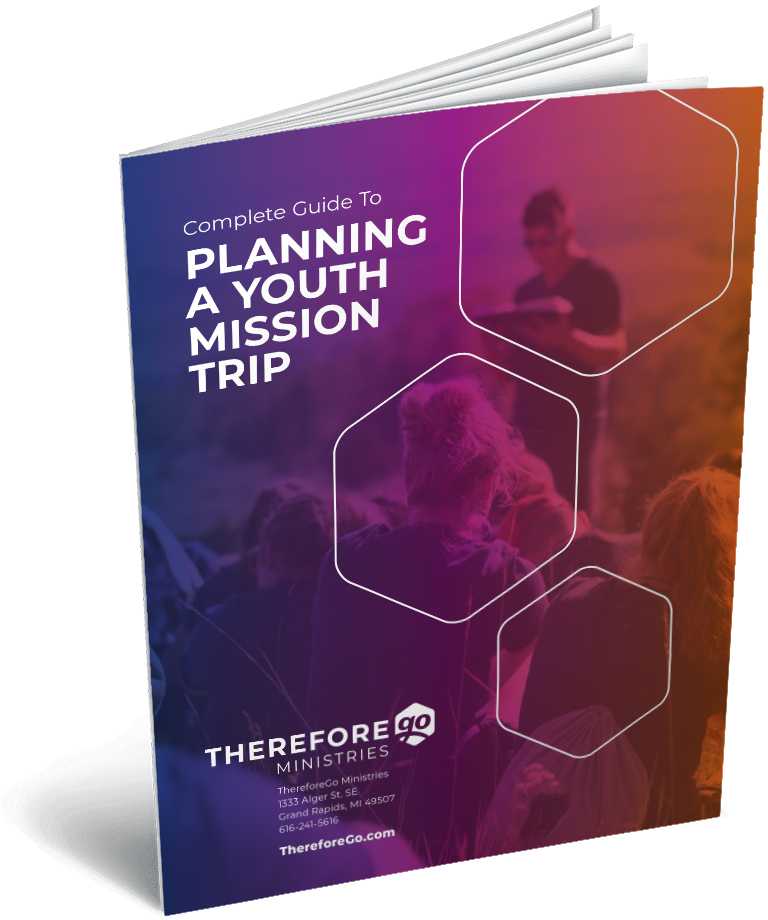By Amanda Roozeboom, SERVE Director
Many believe that short-term missions trips cause more harm than good to the people and communities where they occur. All too often, this is true, but better models exist. ThereforeGo Ministries is a short-term missions organization rooted in long-term partnerships. We believe short-term missions trips remain an important way to foster young people into belonging, believing, and being welcomed into missions.
We’ve created a unique short-term mission model, called SERVE. This one-week domestic mission trip for teens in the U.S. or Canada introduces students in grades 7-12 to spreading the gospel through missional living and confronting justice issues. Unlike other short-term mission trips for teens, all ThereforeGo SERVE sites are hosted by a local church.
We believe short-term missions works best when it happens through the local church. We want to empower local churches to live missionally to reflect Christ’s love. This helps show young adults how a church should and can be alive and living outside its walls. Finally, this philosophy ensures that when groups leave, the people being served are not left behind; the local church remains to continue the relationships.
I recently spoke with Beth Seversen, author of Not Done Yet, and discussed what qualities local churches’ have that have teens and emerging adults as a significant part of the congregation. Her research shows that members of Gen Z want to be invited to serve – in meaningful ways – and contribute to the life of the church without the typical strings attached.
Faith communities that allow teens and emerging adults to belong before they believe and contribute before they commit, see this demographic stay and embrace the Christian faith. In a time when so many churches lament the departure of Gen Z-ers and Millennials, this is no small accomplishment.
Something similar happens when a participant attends a SERVE trip. The students are not second-tier volunteers. Each day, they contribute in meaningful ways. They are seen as people who belong and have a significant role within this temporary community. Yes, the adults drive the vans, facilitate evening small group discussions, and ensure safety on all worksites.
However, the students are in charge of completing the tasks at the worksites and building relationships with those receiving assistance. Through active engagement and learning the stories of others, the root causes of inequality become visible, and participants grow in their biblical justice conduct and consciousness. As participants discover a broader answer to, ‘What does your/the church do?’ we pray they can connect the dots and respectfully engage with their local church leadership to serve at home the rest of the year.
SERVE is a unique blend of community outreach and discipleship, with spiritual transformation as the goal at every level. With relationships at the heart of everything we do, we have seen this brief experience become a significant part of the lives of all who participate. Most importantly, the SERVE model provides spaces for Gen Z to belong and come to believe in their own time and place. Because SERVE is connected to the local church, when critical faith questions or doubts are expressed, Christian mentors are available to point them to Jesus each step of the way.
Teens are searching for security, significance, and strength. Throughout the SERVE week, teen participants ask themselves: am I okay outside my comfort zone, do I make a difference, can I make it through challenging experiences?
Members of Gen Z are searching for open doors and safe spaces to answer these questions. The local church has the extraordinary opportunity to welcome and walk alongside them as they make their way towards a faith commitment through acts of service and a sense of belonging. Jean Vanier, Founder of L’Arche Communities, believes,
“To love someone is not first of all to do things for them, but to reveal to them their beauty and value, to say to them through our attitude: ‘You are beautiful. You are important. I trust you. You can trust yourself.’ We all know well that we can do things for others and in the process crush them, making them feel that they are incapable of doing things by themselves. To love someone is to reveal to them their capacities for life, the light that is shining in them.”
Too often, people of faith are quick to exclude others. Gen Z is waiting for an invitation. Welcoming them in and giving them meaningful work to do can be risky. However, missions have always been a little dangerous. Fully embrace the risk. The relationships formed and the transformation experienced are worth it.
Originally published by EMQ a Missio Nexus publication in 2022.
